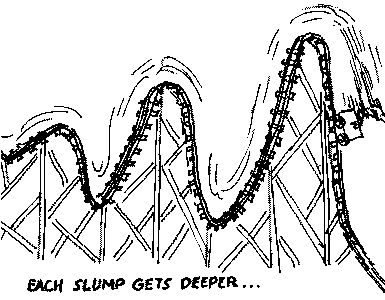A May 2011 paper by the University of Maryland economist John Haltiwanger illustrates this dynamic. From 1980 to 2009, Haltiwanger observed, 17 percent of jobs in any given year were accounted for by new or expanding firms, while 15 percent of the previous year’s jobs vanished due to the contraction or exit — a nice way to say “going out of business” — of other firms. This process costs a lot and wreaks havoc. But it has two silver linings. The first is that, until recently, gross job creation has outpaced destruction. The second is that the churning process tends to raise economy-wide productivity. Haltiwanger’s exiting firms are generally less productive than surviving ones, and young ones that survive past their first couple of years have higher productivity levels and higher productivity gains than older ones. A growing firm will open new factories or retail outlets; an unsuccessful firm will close them.….
Also ends up defending Romneys’ record,
These messy facts didn’t make it into When Mitt Romney Came to Town. And Romney has so far proven incapable of defending private equity with stories like this one. If Romney secures the Republican presidential nomination, he’ll have to offer his own narrative about the churn, a narrative that shows how it fosters prosperity rather than destroys it.
Robert Kagan talks about the “myth of American Decline.”
Apparently the President of the United States reads Kagan.
Powerful as this sense of decline may be, however, it deserves a more rigorous examination. Measuring changes in a nation’s relative power is a tricky business, but there are some basic indicators: the size and the influence of its economy relative to that of other powers; the magnitude of military power compared with that of potential adversaries; the degree of political influence it wields in the international system—all of which make up what the Chinese call “comprehensive national power.” And there is the matter of time. Judgments based on only a few years’ evidence are problematic. A great power’s decline is the product of fundamental changes in the international distribution of various forms of power that usually occur over longer stretches of time. Great powers rarely decline suddenly. A war may bring them down, but even that is usually a symptom, and a culmination, of a longer process.
AM: I know the fact that the American decline thesis is as old as America itself isn’t really proof that it’s still wrong, but it is telling that Americans always seem to think they’re in decline, and so far they’ve always been wrong.
Mark Pennington on public choice theory, and its implications for those on the left.
This is a particularly good piece.
Yes, business interests can be powerful – but not because they are businesses or because we live in a ‘capitalist’ society. Instead, they exercise power because in some sectors where there are a relatively small number of big players business interests may find it easier to overcome collective action/free-rider problems than other groups such as taxpayers and consumers-who find it much harder to form a cohesive political force.







